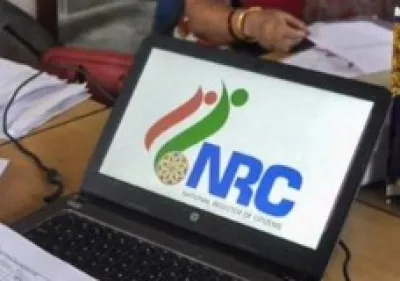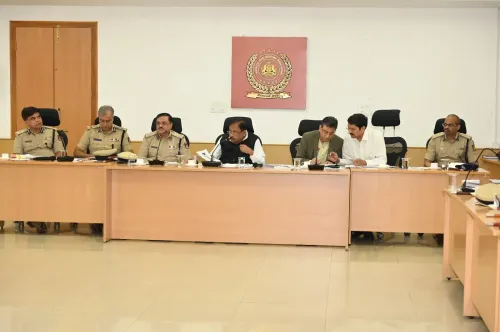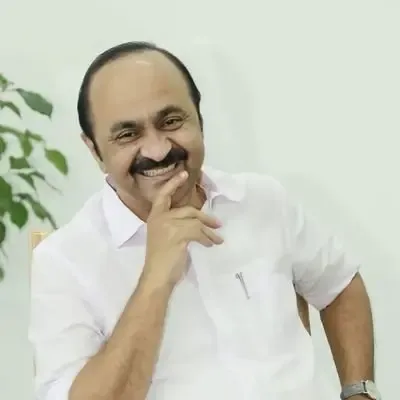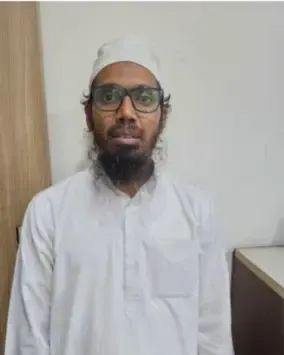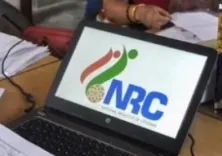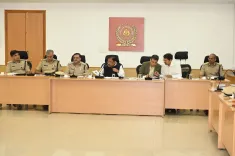India Calls US-Iran Nuclear Negotiations a Positive Step
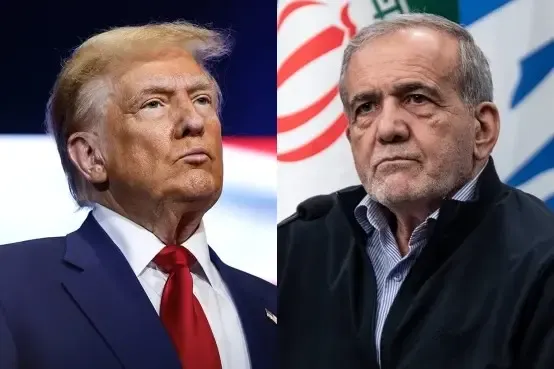
Synopsis
Key Takeaways
- India views US-Iran talks positively.
- Dialogue and diplomacy are essential for resolution.
- Negotiations will take place in Rome.
- Oman continues to mediate the discussions.
- US demands cessation of Iran's nuclear enrichment.
New Delhi, April 17 (NationPress) India on Thursday characterized the ongoing US-Iran nuclear discussions as a “positive development”, expressing hope that these negotiations could lead to a resolution of the issues at hand and foster peace and stability in the region.
“We view the ongoing US-Iran talks as a positive development. We have consistently advocated for dialogue and diplomacy as the pathway forward on such matters. It is our expectation that these discussions will result in a resolution that satisfies all parties involved and contributes to regional peace and stability,” stated Randhir Jaiswal, spokesperson for the Ministry of External Affairs (MEA), during a weekly media briefing in New Delhi.
The second round of indirect negotiations between Tehran and Washington is set to take place in Italy's capital, Rome, according to Iran's Deputy Foreign Minister Kazem Gharibabadi.
“As of now, we have not received any new requests from the other side regarding a change in the location of the negotiations, and Rome will serve as the venue for the second round,” Gharibabadi mentioned in a live televised interview late Wednesday.
Regardless of the location of the negotiations, Oman will continue to play a role in facilitating and mediating the discussions, the official added.
Iran's Foreign Minister Seyed Abbas Araghchi and US Special Envoy to the Middle East Steve Witkoff are scheduled to engage in the second round of their indirect talks on Saturday. The discussions primarily focus on Iran's nuclear program and the alleviation of US sanctions on the nation.
Witkoff stated on Tuesday that Iran “must cease and eliminate” its nuclear enrichment program to reach a deal with the United States, contradicting his earlier comments that allowed for low-level uranium enrichment.
“A deal with Iran will only be finalized if it is a Trump deal. Any ultimate arrangement must establish a framework for peace, stability, and prosperity in the Middle East — meaning that Iran must halt and eliminate its nuclear enrichment and weaponization endeavors. It is crucial for the world to forge a robust, equitable agreement that will endure, which is what President Trump has tasked me to accomplish,” the Office of U.S. Special Presidential Envoy Steve Witkoff shared on X.
During the first round of talks in Muscat last week, Araghchi participated in “indirect” discussions with Witkoff, facilitated by Omani Foreign Minister Sayyid Badr bin Hamad bin Hamood Albusaidi. These discussions centered on Iran's nuclear program and the potential lifting of US sanctions.
The talks were initiated by US President Donald Trump, who threatened Iran with military action and secondary tariffs if Tehran did not reach an agreement with Washington regarding its nuclear program.
Iran entered into a nuclear agreement, officially known as the Joint Comprehensive Plan of Action, with six major countries — Britain, China, France, Germany, Russia, and the United States — in July 2015, agreeing to limits on its nuclear program in exchange for sanctions relief.
However, the US withdrew from the agreement in May 2018, reinstating sanctions that prompted Iran to reduce some of its nuclear commitments. Efforts to revive the nuclear deal have not made significant progress.

